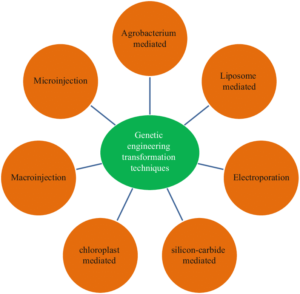Genetic engineering is a revolutionary field that has transformed our understanding of biology and our ability to manipulate living organisms. This scientific discipline involves the direct manipulation of an organism’s DNA to alter its characteristics. But why is it called genetic engineering? To answer this question, we must delve into the history, methods, and applications of this technology.
The Origins of Genetic Engineering
The term “genetic engineering” was first coined in the 1970s, a period that marked significant advancements in molecular biology. The word “genetic” refers to genes, the fundamental units of heredity in living organisms, while “engineering” denotes the application of scientific and mathematical principles to design and build structures or processes. Hence, genetic engineering can be understood as the application of engineering principles to the genetic material of organisms to achieve desired traits or outcomes.
Understanding Genes and DNA
To grasp why genetic engineering is named as such, it is crucial to understand the basics of genes and DNA. DNA (deoxyribonucleic acid) is the molecule that carries the genetic instructions for life. Genes are specific sequences of DNA that encode the information needed to build and maintain an organism. By altering these sequences, scientists can change the characteristics of an organism, such as its appearance, behavior, or resistance to diseases.
Techniques in Genetic Engineering
Recombinant DNA Technology
One of the cornerstone techniques in genetic engineering is recombinant DNA technology. This method involves combining DNA from two different sources. For instance, a gene from one organism can be inserted into the genome of another organism. This technique has been used to produce insulin, human growth hormones, and various other pharmaceuticals.
CRISPR-Cas9
In recent years, the CRISPR-Cas9 system has revolutionized genetic engineering. This tool allows for precise editing of the genome by cutting the DNA at specific locations. CRISPR has made it easier and more efficient to modify genes, opening up new possibilities for treating genetic disorders, enhancing crop resistance, and even combating infectious diseases.
Gene Cloning
Gene cloning is another essential technique in genetic engineering. It involves creating copies of a particular gene to study its function or to produce large quantities of the gene product. This process is fundamental in research and the development of genetically modified organisms (GMOs).

Applications of Genetic Engineering
Medicine
Genetic engineering has vast applications in medicine. Gene therapy aims to treat or prevent diseases by correcting defective genes. Scientists are exploring ways to use gene editing to cure genetic disorders such as cystic fibrosis and sickle cell anemia. Additionally, genetically modified bacteria and yeast are used to produce important drugs, including insulin and vaccines.
Agriculture
In agriculture, genetic engineering has led to the development of genetically modified crops that are resistant to pests, diseases, and environmental conditions. These crops can yield higher productivity and reduce the need for chemical pesticides, contributing to sustainable farming practices. Examples include Bt cotton and Roundup Ready soybeans.
Environmental Conservation
Genetic engineering also plays a role in environmental conservation. For instance, genetically modified trees that can absorb more carbon dioxide are being developed to combat climate change. Moreover, bioremediation, the use of organisms to clean up environmental contaminants, often employs genetically engineered bacteria to break down pollutants more efficiently.
Ethical Considerations in Genetic Engineering
While the potential benefits of genetic engineering are vast, the field also raises significant ethical concerns. The ability to modify human genes, for example, poses questions about the extent to which we should interfere with natural processes. There are also concerns about the long-term effects of genetically modified organisms on ecosystems and human health. These ethical considerations necessitate careful regulation and oversight of genetic engineering practices.
The Future of Genetic Engineering
The future of genetic engineering holds great promise. Advances in technologies such as CRISPR and synthetic biology are likely to lead to new medical treatments, agricultural innovations, and environmental solutions. However, the continued development of this field will require balancing innovation with ethical responsibility and public dialogue.
Conclusion.
Genetic engineering is so named because it involves the application of engineering principles to the genetic material of organisms. This powerful field has transformed various aspects of science, medicine, agriculture, and environmental conservation. As we continue to explore the possibilities of genetic engineering, it is crucial to address the ethical and societal implications to ensure that the benefits are realized responsibly.
